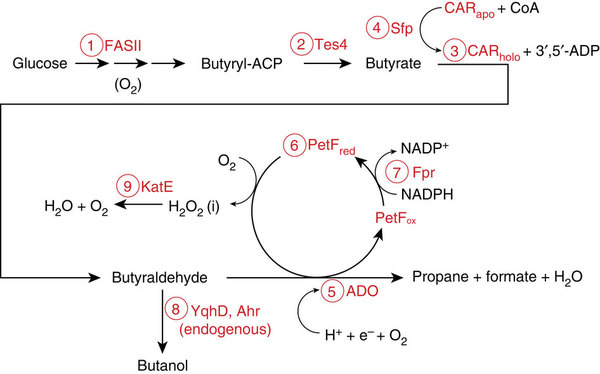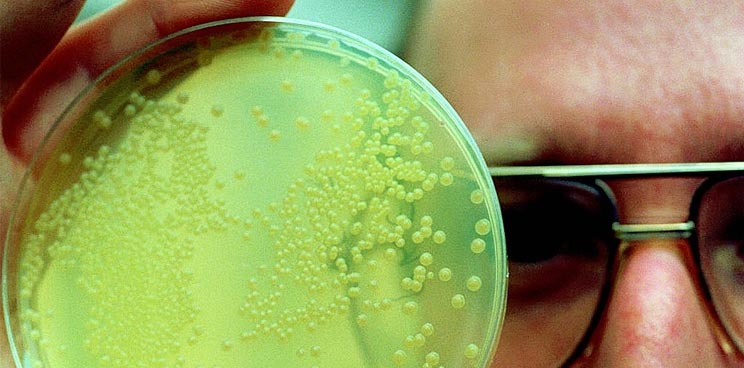Five genes introduced in the bacterial genome of E.coli can modify its metabolism to synthesise propane, which can be then converted to liquified petroleum gas (LPG) as an alternative source of fuel.
![]() Escherichia coli is a facultative anaerobe of the genus Escherichia that is commonly found in the lower intestine. An international team of researchers from Imperial College London (UK) and the University of Turku (Finland) have been using a modified strain of E. coli to synthesize propane from a glucose source.
Escherichia coli is a facultative anaerobe of the genus Escherichia that is commonly found in the lower intestine. An international team of researchers from Imperial College London (UK) and the University of Turku (Finland) have been using a modified strain of E. coli to synthesize propane from a glucose source.
So why do we care about being able to produce biofuels from bacteria? It’s nothing new…right? Actually, synthesizing propane from Bacteria is a big deal, setting this development apart from other (perhaps better known) biotechs which are using bacteria to alleviate fossil fuel usage. One example is Deinococcus, which is being used by the French giant Deinove, to make biofuels from organic waste materials (such as woodchip and tobacco plants).

Published in Nature Communications, the UK-Finland research team have gone a step further, cutting out the biomass middleman to make propane synthesis far more efficient. Patrik Jones and his team at Imperial (and Turku) have therefore engineered a strain’s glucose metabolism by altering the synthesis pathway of fatty acids.
The new metabolic path can form butyric acid instead of fatty acids, an intermediate which is then converted to propane by other enzymes such as carboxylic acid reductase (CAR). Since commercially available liquid petroleum gas is currently derived from mainly from fossil fuels, now it could be produced from E.coli instead.

With funding from the European Research Council, an alternative source of LPG is of great commercial and political interest. Although fracking has provided a boost in the supply of liquid and gaseous fossil fuels, there is still a continued need for genuinely sustainable energy technologies over the long-term (not to mention the political strain Fracking has sparked). An article by the BBC explains Fracking and its controversy well.
However, this propane-production method is still far off from an industrial solution to Fracking, despite propane’s value in immediate use. The scientists chose to target propane because it can easily escape the cell as a gas, yet requires little energy to transform from its natural gaseous state into a liquid that is easy to transport, store and use. As Jones explained:
Although we have only produced tiny amounts so far, the fuel we have produced is ready to be used in an engine straight away“
For this reason the Imperial and Turku researchers are now working on the feasibility of exporting E.coli on a larger production scale, which Jones hopes will reach a commercial stage in the next 5-10 years.





